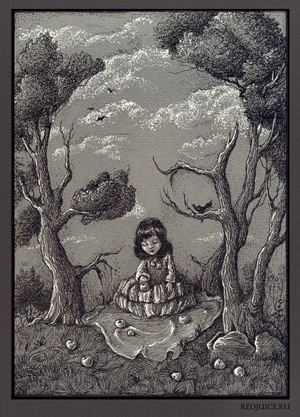Lesson 4: Cultural Perspectives on Death
Attention

We assume that we've come so far as compassionate citizens of the world if we do choose to read the news, yet the attitude towards life can be one where we put blinders on and forget that there are civil wars going on. It's easy to forget that there are so many people starving to death every single day. --Anne Hathaway
Learning Outcomes
Upon completion of this lesson's material, students will be able
- Describe the development of cultural and societal attitudes regarding death and dying.
- Identify trends in the portrayal of death and dying in the media.
- Define the interrelationships among intellectual, psychological, spiritual, and physical health in one's own life, and can describe how two or more intellectual, psychological, spiritual or physical aspects interact to contribute to one's health.
- Assess one’s own personal health, wellbeing, and self-care.
- Describe personal experiences of love, life, laughter, joy, gratitude, introspection, self-care, self-reflection and relaxation.
Teaching
Read at least three examples of obituaries, either of people you know or online, so you can understand what typically is included. (I have included examples below)
http://www.legacy.com/obituaries/sunherald/obituary.aspx?n=Harry-Stamps&pid=163538353
http://www.huffingtonpost.com/2013/09/07/grandparents-day-2013_n_3887074.html
Review the following website http://www.dyingmatters.org/page/understanding-death-and-dying which was created to raise awareness of death, dying and bereavement.
Explore the various links available which explore intellectual, physical and spiritual components of life and death.
Remember the bio-psycho-social-spiritual model? How can this relate to dying & death as well as living & life?
Describe some factors that are important to health, living, dying and death. Why are these things important?
http://www.ted.com/talks/steve_jobs_how_to_live_before_you_die
http://www.ted.com/talks/randy_pausch_really_achieving_your_childhood_dreams
these individuals present what they have learned in life, as they prepared for death.
Read Chapter Two in Kubler-Ross. Pay attention to the interviews, and the conversations regarding death and dying.
The art of living well and the art of dying well are one.
--Epicurus
Do you believe this? How does it compare to the previous module’s exploration of death as dark and dangerous? What are some attitudes about death that you have, that people that you know have, and how were those attitudes established?
How can they change?
Assessment

Lesson 4 Assignment A
- Obituary Assignment Due: Please write your own obituary. Be creative: Who are you? What will you have accomplished? What do you want people to know about you after you're gone? The sky's the limit!
- Create a BUCKET LIST
And create your own Bucket list of 25 items that answer Candy Chang’s question.
Lesson 4 Journal Entry
Answer questions within the lesson, commenting on at least two of the resources found within the lesson. (For example: Remember the bio-psycho-social-spiritual model? How can this relate to dying & death as well as living & life? Describe some factors that are important to health, living, dying and death. Why are these things important? What are some attitudes about death that you have, that people that you know have, and how were those attitudes established? How can they change?)
Lesson 4 Assignment B
Submit a pdf of the journal article that you will be examining and a brief summary of what you are hoping to learn, include the EBSCO search features/key words you used. It could be useful to you to prepare a brief outline for this assignment, here.